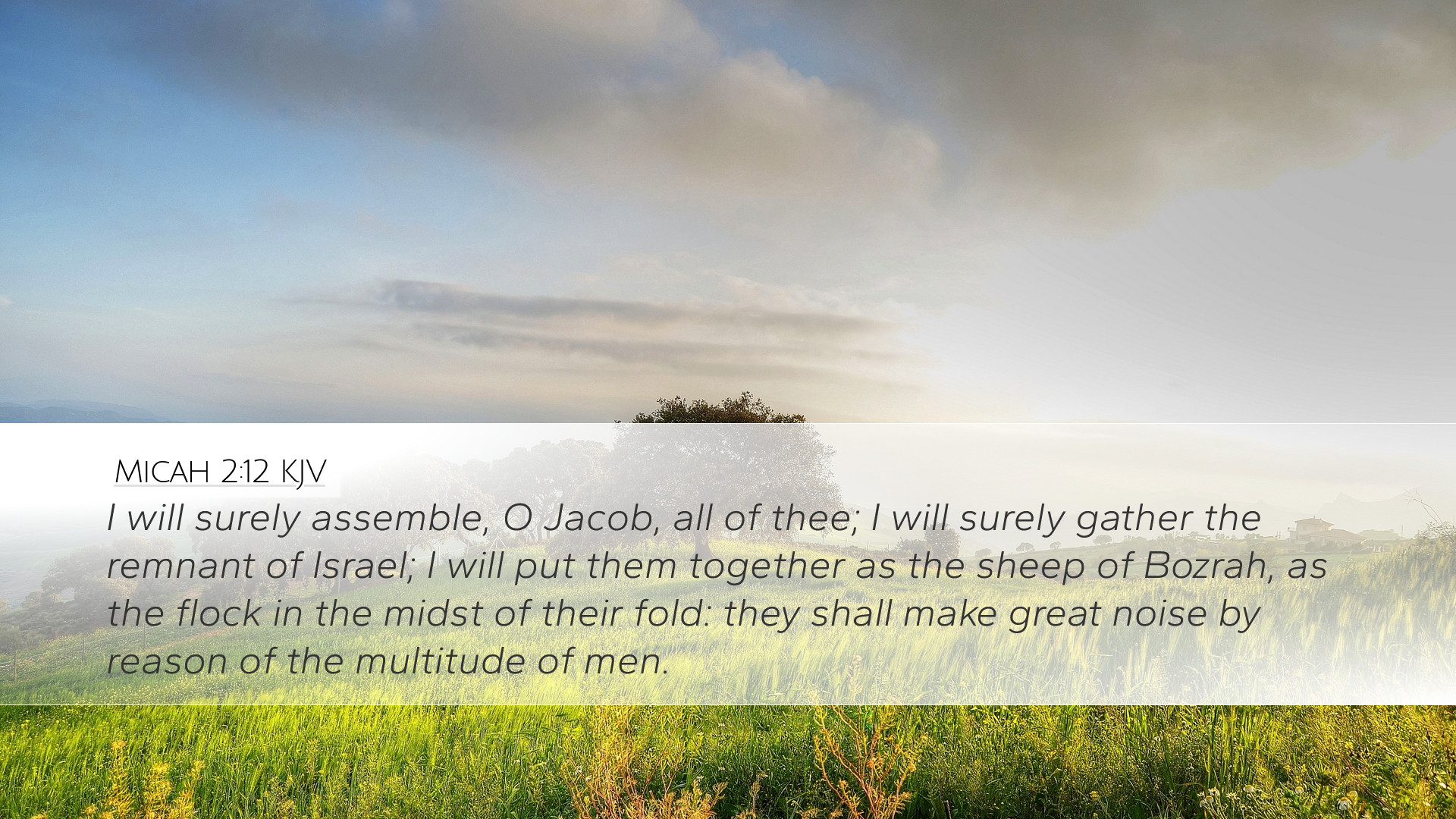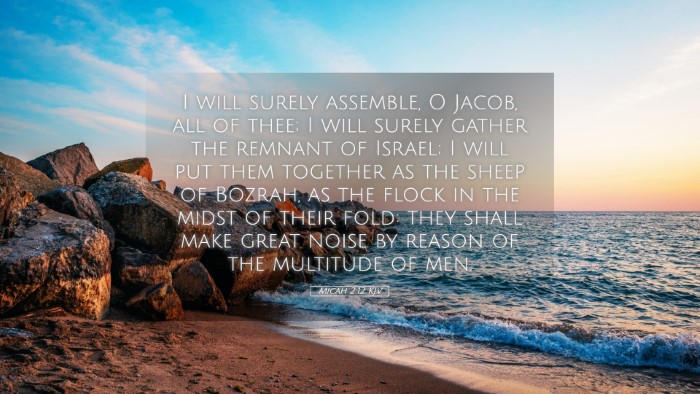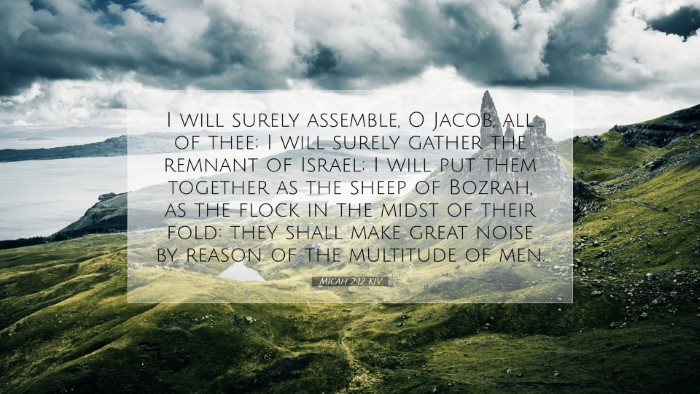Old Testament
Genesis Exodus Leviticus Numbers Deuteronomy Joshua Judges Ruth 1 Samuel 2 Samuel 1 Kings 2 Kings 1 Chronicles 2 Chronicles Ezra Nehemiah Esther Job Psalms Proverbs Ecclesiastes Song of Solomon Isaiah Jeremiah Lamentations Ezekiel Daniel Hosea Joel Amos Obadiah Jonah Micah Nahum Habakkuk Zephaniah Haggai Zechariah MalachiMicah 2:12
Micah 2:12 KJV
I will surely assemble, O Jacob, all of thee; I will surely gather the remnant of Israel; I will put them together as the sheep of Bozrah, as the flock in the midst of their fold: they shall make great noise by reason of the multitude of men.
Micah 2:12 Bible Commentary
Bible Commentary on Micah 2:12
Verse Reference: Micah 2:12 - "I will surely assemble all of you, O Jacob; I will gather the remnant of Israel; I will put them together as the sheep of a fold, as the flock in the midst of their pasture: they shall make great noise by reason of the multitude of men."
Introduction
Micah, a prophet in the 8th century BCE, addresses the people of Israel, focusing on themes of judgment, restoration, and hope. Micah 2:12 is a pivotal verse that highlights God's promise to gather His people despite their transgressions. The insights from public domain commentaries provide a deeper understanding of this verse and its implications for the people of Micah's time and today.
Exegesis and Historical Context
Matthew Henry: In his exposition, Henry emphasizes that God's gathering of Jacob and the remnant of Israel signifies His mercy and the unity among His people. Despite the severe consequences of their sin, God’s grace offers hope for restoration. Henry draws a parallel to the "sheep of a fold," which suggests safety and nurture under God's protection.
Albert Barnes: Barnes provides a historical backdrop, noting that Micah prophesied during a time of moral and social decay in Israel. He reflects on the metaphor of a flock, emphasizing the communal aspect of the gathering. The imagery of sheep evokes a sense of belonging and care that God extends, promising that He will gather those who have been oppressed and scattered.
Adam Clarke: Clarke adds an important theological perspective, asserting that the "remnant" signifies those who remain true to God despite widespread apostasy. He elaborates on the significance of the "flock in the midst of their pasture," suggesting that God’s people, although surrounded by hostile forces, will find sustenance and protection in Him.
Theological Insights
This verse encapsulates key theological themes such as:
- Restoration: God’s promise to assemble His people showcases His unwavering commitment to restoration amidst judgment.
- Divine Shepherding: The imagery of a shepherd conveys God's protective nature and His active role in leading His people.
- Hope for the Remnant: The reference to the remnant serves as an assurance that God preserves a faithful group, emphasizing that faithfulness, even in a time of widespread sin, is acknowledged by God.
Interpretative Perspectives
The verse has been subject to various interpretations:
- Present Context: Many scholars see this promise as applicable to the immediate historical context of Israel's exiles returning from Babylon.
- Eschatological View: Others interpret this passage in light of eschatology, denoting a future gathering of God’s people in the New Covenant, a theme echoed in the New Testament.
Practical Applications
The implications of Micah 2:12 for pastors, students, theologians, and scholars are profound:
- Encouragement in Ministry: Leaders can draw strength from the assurance that God actively gathers His people, encouraging them in their outreach and service.
- Call to Faithfulness: Individuals are reminded of their role in remaining faithful and being part of the remnant that voices God's praises.
- Community Building: The church is called to foster a sense of belonging, mirroring the shepherd-like care of God towards His flock.
Conclusion
Micah 2:12 offers a rich tapestry of hope and assurance. Despite the backdrop of judgment and social decay, God's promise to gather His people reaffirms His steadfast love and faithfulness. In reviewing insights from Matthew Henry, Albert Barnes, and Adam Clarke, we see a harmonious understanding that encourages believers to trust in God’s restorative power. As we delve into this verse, may we be inspired to embody the role of shepherds within our communities, leading with love and care, much like our Heavenly Father.


